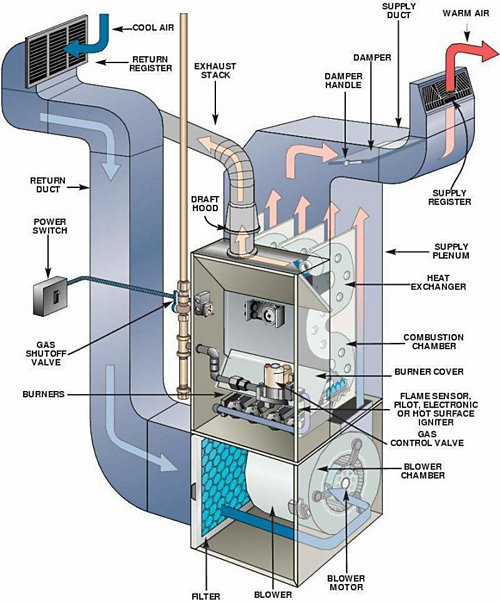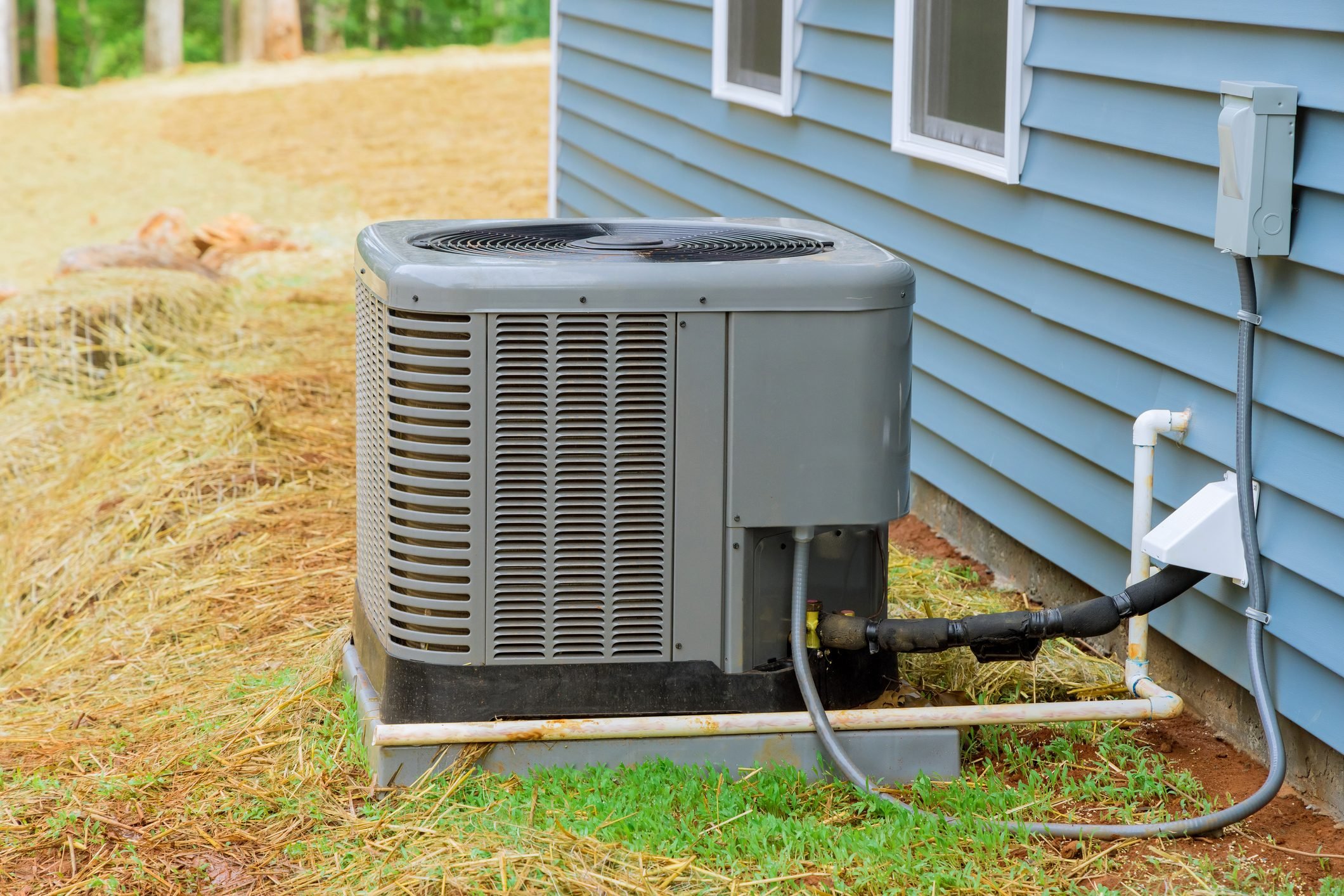Understanding the Different Kinds Of A/c System for Ideal Efficiency
Comprehending the numerous kinds of cooling and heating systems is essential for property owners intending to enhance comfort and power efficiency. Central air conditioning systems supply consistent temperature level control, while ductless mini-split systems use adaptability. Warmth pumps supply efficient year-round climate management. For smaller sized rooms, home window and portable air conditioning system act as functional solutions. Geothermal systems make use of regular below ground temperatures for lasting cooling and heating. Each option holds special advantages, prompting a better assessment of which may suit private needs best.
Air Conditioning Equipments
Many homeowners look for ways to improve indoor comfort, recognizing main air conditioning systems is important for effective climate control. Air conditioning operates by distributing great air with a system of ducts, distributing it evenly throughout the home. This sort of system is composed of several vital elements, consisting of an outside compressor, an interior evaporator coil, and a network of ductwork.
The compressor cools cooling agent, which after that takes in heat from indoor air as it travels through the evaporator coil. This cooled down air is pushed via the ducts and right into living rooms, ensuring a consistent temperature. Central air conditioning systems are understood for their efficiency, often using programmable thermostats to maximize power use. Normal maintenance, such as filter modifications and system checks, is vital to assure durability and efficiency. Understanding these elements aids property owners make educated decisions relating to installment and maintenance, eventually boosting comfort and energy effectiveness in their homes.

Ductless Mini-Split Solutions
Ductless mini-split systems supply an adaptable alternative to conventional main air conditioning, dealing with home owners looking for efficient climate control without the need for extensive ductwork. These systems include an outdoor compressor unit and one or more interior air-handling devices, permitting targeted air conditioning and home heating in specific locations or areas. This zoning capacity boosts convenience by allowing individuals to change temperature levels based on private preferences, eventually causing energy financial savings.
Setup is typically simpler and less intrusive contrasted to ducted systems, which can be beneficial for older homes or rooms with restricted architectural alterations. Furthermore, ductless mini-split systems commonly include energy-efficient innovations, such as inverter-driven compressors, which optimize power usage based on demand. Their compact style also permits various placement choices, making them excellent for tight or unusual spaces. Consequently, ductless mini-split systems have acquired popularity amongst home owners seeking contemporary, effective HVAC remedies.
Warm Pumps
Heat pumps stand for a flexible and energy-efficient choice for both heating and cooling down household areas. These systems run by moving warmth instead of generating it, making them specifically efficient in modest climates. Throughout warmer months, heat pumps remove heat from indoors and release it outside, providing air conditioning. Conversely, in winter months, they reverse this process, attracting heat from the outside air or ground to warm up the interior.
There are two key kinds of heatpump: air-source and ground-source (or geothermal) Air-source heat pumps are extra common because of their less complex setup and reduced initial price, while ground-source models boast greater efficiency and stability in efficiency. Additionally, warmth pumps can notably minimize power bills and carbon footprints when contrasted Bonuses to conventional home heating methods, making them an environmentally friendly selection. On the whole, heatpump stand as an engaging remedy for house owners looking for effective climate control throughout the year.
Home Window and Portable Air Conditioners

On the other hand, portable ac unit use versatility, as they can be quickly relocated from space to space. These systems usually need an airing vent set to tire warm air via a home window, yet they give a convenient option for momentary cooling requirements.
Both types of a/c are appropriate for tenants and those seeking to avoid extensive installment procedures. Individuals ought to consider factors such as BTU ability, power effectiveness scores, and sound levels when choosing an unit to ensure peak performance for their details area and cooling requirements.
Geothermal Home Heating and Air Conditioning Systems
As energy performance ends up being progressively essential, geothermal heating & cooling systems have gained appeal for their lasting method to environment control. These systems use the stable temperature levels discovered my site below ground to give heating in winter season and cooling in summer season. By harnessing the planet's natural thermal power, geothermal systems significantly reduce dependence on fossil fuels and reduced energy costs.

Geothermal systems typically need much less maintenance compared to typical HVAC systems, resulting in long-lasting financial savings. With raising awareness of environment adjustment, these systems stand for a forward-thinking remedy for those seeking environment-friendly and effective heating and cooling alternatives
Often Asked Questions
How Frequently Should I Solution My HVAC System?
HVAC systems need to ideally be serviced twice a year, once in the spring and as soon as in the loss. Regular upkeep helps guarantee effectiveness, lengthens anonymous lifespan, and avoids pricey malfunctions during height usage seasons.
What Size HVAC System Do I Need for My Home?
Identifying the suitable dimension for a cooling and heating system requires computing the home's square footage, insulation high quality, and environment. An expert analysis assurances maximum performance, comfort, and power financial savings tailored to the certain needs of the residence.
Can I Set Up an A/c System Myself?
Setting up a HVAC system separately is feasible, yet it requires technical knowledge and skills. Mistakes can cause inadequacy or security hazards, so getting in touch with an expert is typically recommended to assure correct installment and compliance with guidelines.
What Are the Indicators My Heating And Cooling System Needs Repair?
Indicators that a HVAC system needs repair service consist of uncommon noises, irregular temperature levels, enhanced energy bills, undesirable smells, and constant biking. Trigger interest to these indicators can stop additional damages and guarantee height system performance.
Just How Can I Enhance My a/c System's Energy Performance?
To improve heating and cooling power effectiveness, one need to regularly change filters, seal ducts, install a programmable thermostat, assurance appropriate insulation, and schedule regular upkeep checks. HVAC experts. These actions jointly enhance performance while minimizing power usage and prices
Central air conditioning systems supply consistent temperature level control, while ductless mini-split systems supply adaptability. Central air conditioning runs by flowing great air with a system of air ducts, dispersing it uniformly throughout the home. Central air conditioning systems are recognized for their performance, frequently making use of programmable thermostats to enhance power use. Ductless mini-split systems provide an adaptable option to standard main air conditioning, catering to homeowners seeking effective environment control without the requirement for substantial ductwork. Geothermal systems usually need less maintenance contrasted to typical Cooling and heating systems, resulting in long-term savings.